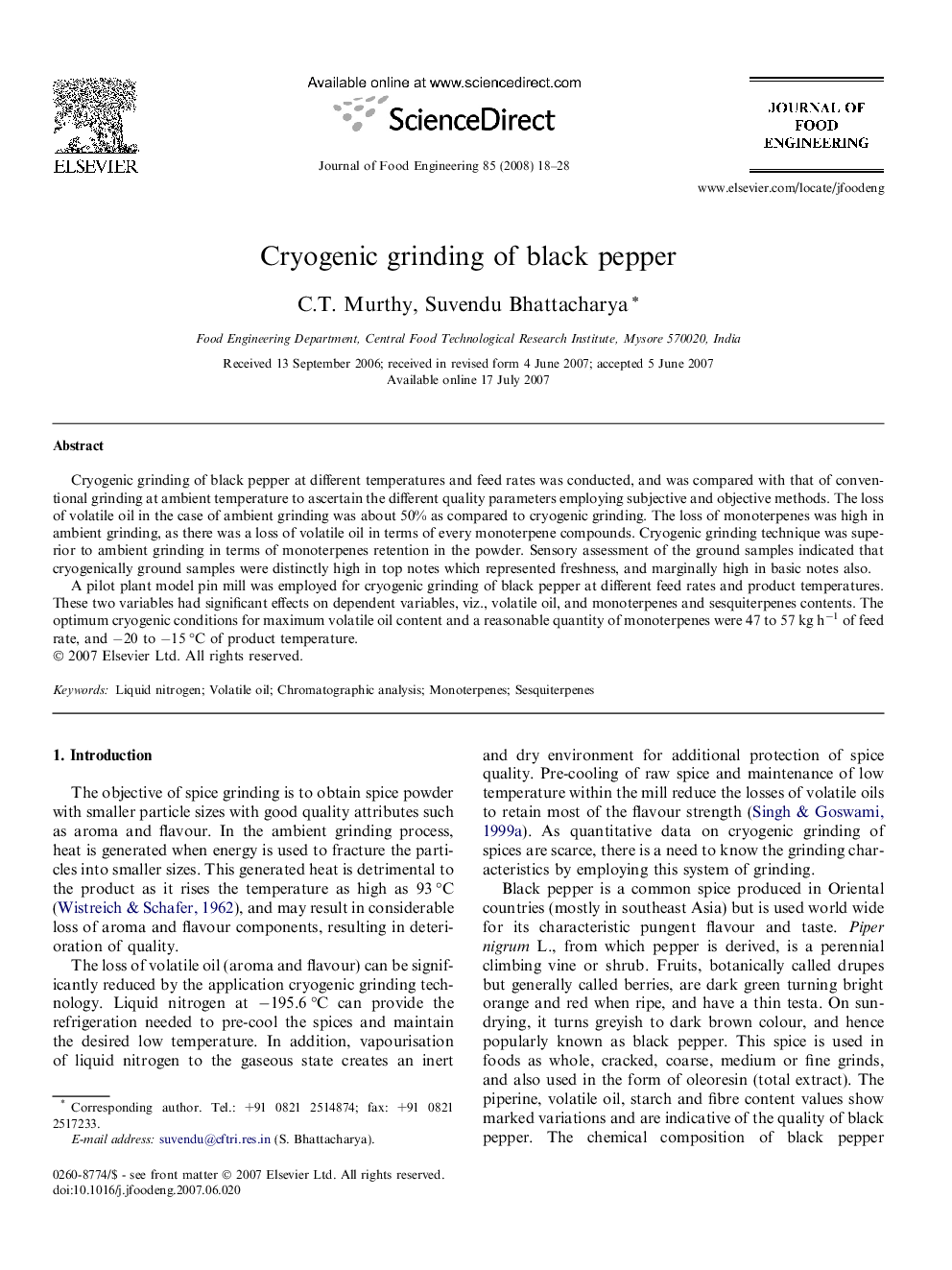| Article ID | Journal | Published Year | Pages | File Type |
|---|---|---|---|---|
| 225221 | Journal of Food Engineering | 2008 | 11 Pages |
Cryogenic grinding of black pepper at different temperatures and feed rates was conducted, and was compared with that of conventional grinding at ambient temperature to ascertain the different quality parameters employing subjective and objective methods. The loss of volatile oil in the case of ambient grinding was about 50% as compared to cryogenic grinding. The loss of monoterpenes was high in ambient grinding, as there was a loss of volatile oil in terms of every monoterpene compounds. Cryogenic grinding technique was superior to ambient grinding in terms of monoterpenes retention in the powder. Sensory assessment of the ground samples indicated that cryogenically ground samples were distinctly high in top notes which represented freshness, and marginally high in basic notes also.A pilot plant model pin mill was employed for cryogenic grinding of black pepper at different feed rates and product temperatures. These two variables had significant effects on dependent variables, viz., volatile oil, and monoterpenes and sesquiterpenes contents. The optimum cryogenic conditions for maximum volatile oil content and a reasonable quantity of monoterpenes were 47 to 57 kg h−1 of feed rate, and −20 to −15 °C of product temperature.
